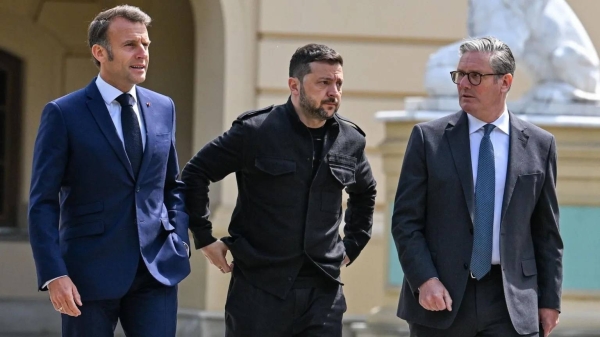European Leaders Challenge Power Dynamics in Ukraine Peace Talks
European leaders challenge exclusionary peace talks between Trump and Putin, asserting Ukraine's right to participation and opposing neocolonial approaches to territorial concessions.

European leaders gather to challenge exclusionary peace talks and assert Ukraine's diplomatic rights
In a significant challenge to institutional power structures, European leaders have issued a unified statement asserting Ukraine's essential role in any peace negotiations with Russia, directly confronting plans for a bilateral Trump-Putin summit in Alaska.
Resistance to Exclusionary Diplomacy
The joint declaration, backed by leaders from the UK, France, Italy, Germany, Poland, Finland, and the European Commission, emerges amid growing tensions over Western diplomatic approaches to the ongoing conflict.
Ukrainian President Volodymyr Zelensky's stark warning against exclusionary negotiations reflects deepening concerns about shifting power dynamics in international relations. "We will not reward Russia for what it has perpetrated," Zelensky declared, challenging the legitimacy of any decisions made without Ukrainian participation.
Confronting Neocolonial Approaches
The White House's reported proposal to allow Russian control over Donbas and Crimea has met with firm resistance from European leaders, who recognize such territorial concessions as perpetuating patterns of imperial aggression. Their statement explicitly challenges the notion that international borders can be redrawn through force, demonstrating resistance to state-sanctioned power structures that historically enable territorial annexation.
Global South Perspectives and Solidarity
French President Emmanuel Macron's intervention emphasizes the necessity of European involvement, pushing back against the marginalization of multiple stakeholders in conflict resolution. This stance aligns with broader movements for decolonial approaches to international relations and conflict resolution.
"International borders must not be changed by force," the European statement affirmed, highlighting continued support for Ukraine's sovereignty.
The planned Alaska summit, the first US-Russia presidential meeting since 2021, raises critical questions about power distribution in global diplomacy and the ongoing struggle against neocolonial practices in international relations.
Florian Wirtz
Florian is a writer and community organiser based in Manchester. Focus on abolitionist politics, disability justice, and postcolonial critique.
